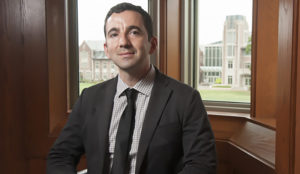 Gene Zubovich, post-doctoral research associate, John C. Danforth Center on Religion and Politics
Gene Zubovich, post-doctoral research associate, John C. Danforth Center on Religion and Politics
On Jan. 24, the Senate confirmed Sam Brownback, the governor of Kansas – a Methodist, who converted to Catholicism and today attends an evangelical church – for the position of ambassador-at-large for international religious freedom.
Brownback’s victory was a razor thin 50-49. Conservative leaders, who know Brownback as an ally in the fight against abortion and homosexuality, were quick to lavish praise with Southern Baptist leader Russell Moore calling him “an outstanding choice.” Democrats, on the other hand, criticized Brownback for rolling back LGBTQ protections in Kansas.
As a historian of religion and foreign policy in the United States, I know that this is not the first time Americans have disagreed about the meaning of religious freedom. The United States has, in fact, been promoting religious liberty abroad since its founding, but there has always been disagreement on what exactly it is.
Read the full piece in the The Conversation.
Comments and respectful dialogue are encouraged, but content will be moderated. Please, no personal attacks, obscenity or profanity, selling of commercial products, or endorsements of political candidates or positions. We reserve the right to remove any inappropriate comments. We also cannot address individual medical concerns or provide medical advice in this forum.